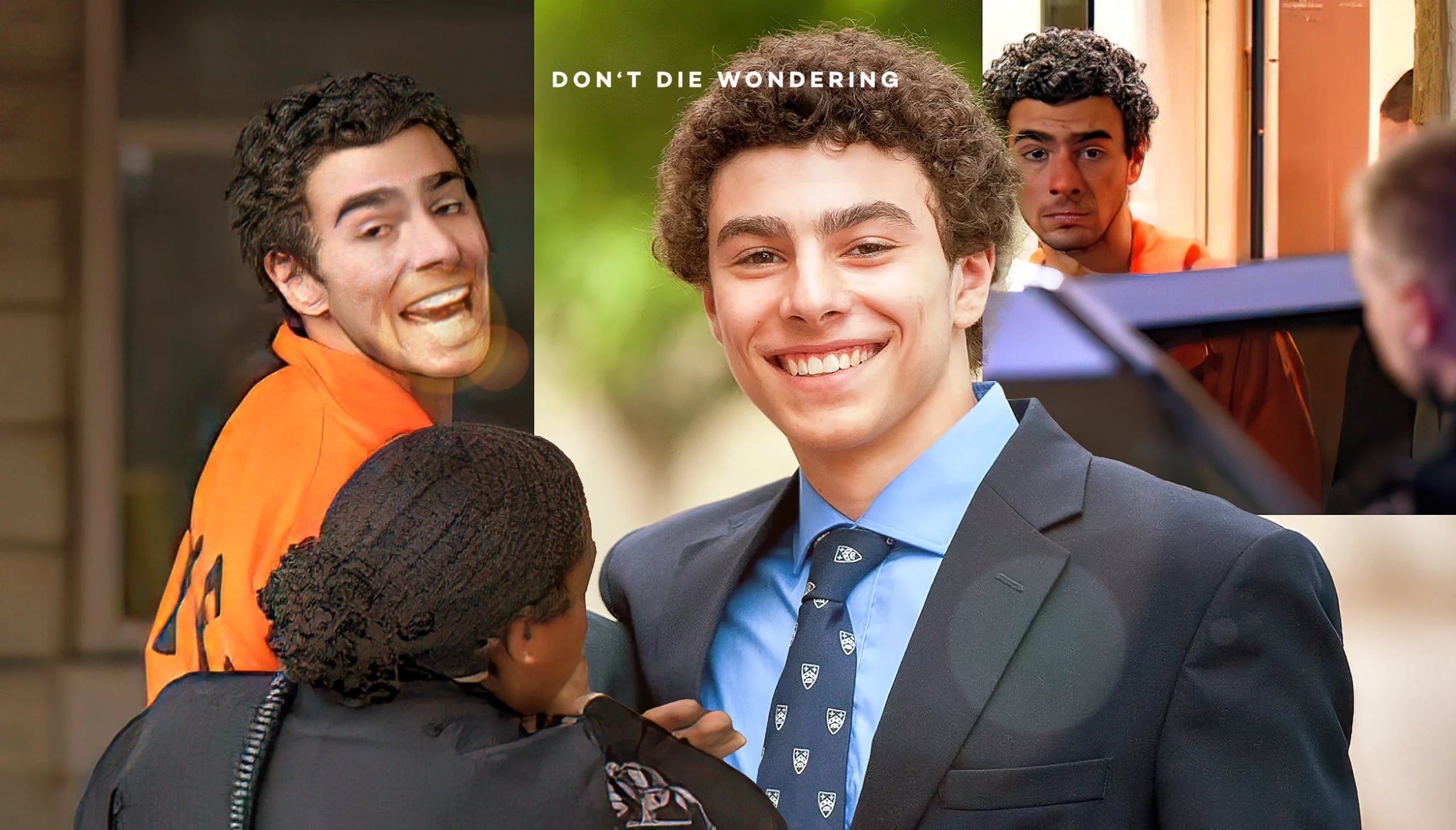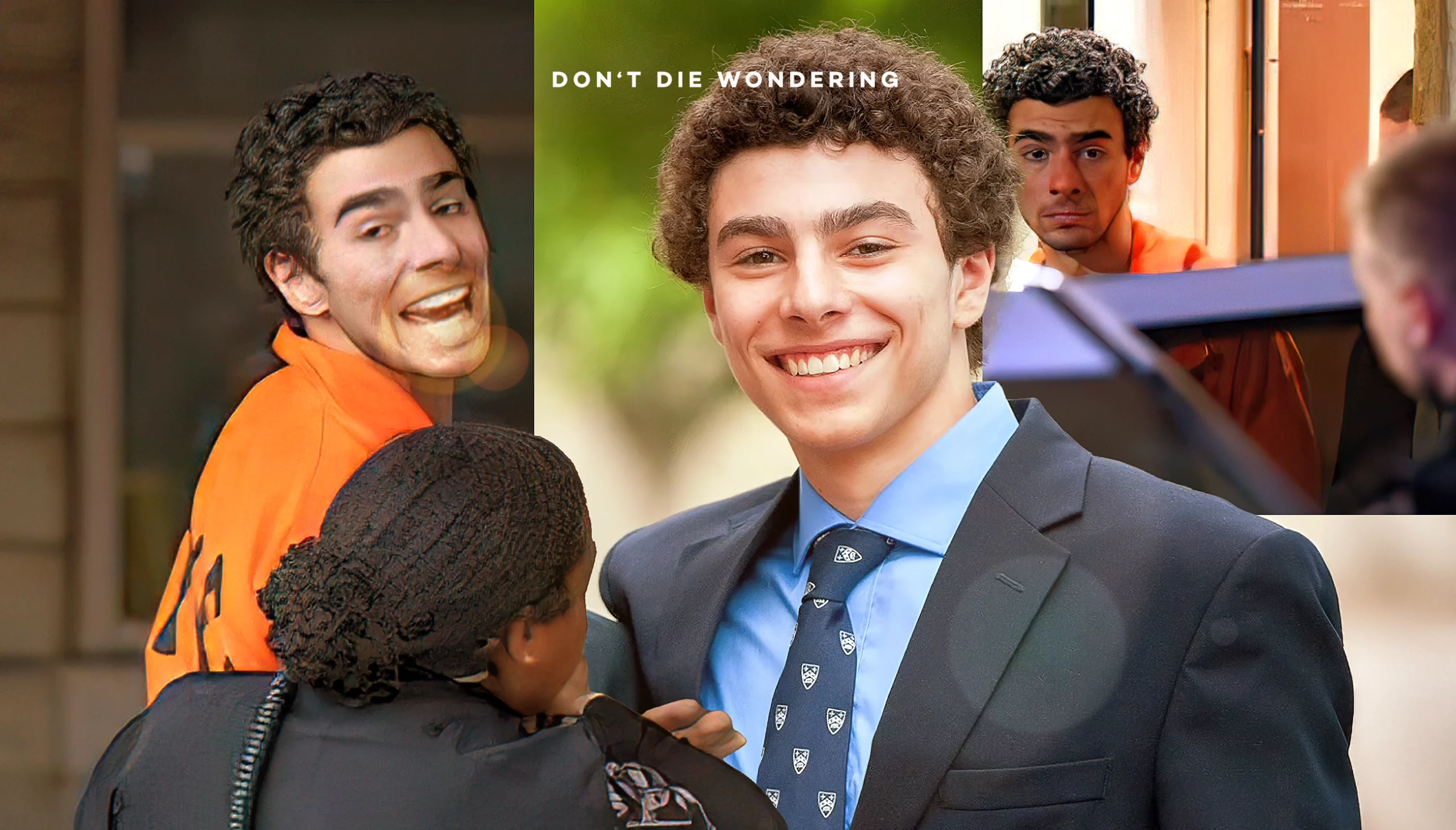This is the story of how systemic frustration, internet culture, and the archetype of the misunderstood genius collided to create a modern phenomenon.
The internet has a curious ability to turn even the most unlikely figures into cultural phenomena. From Tiger King to the infamous Jeremy Meeks (dubbed the “hot felon”), there exists a peculiar fascination with individuals who are entangled in controversy and tragedy. But nothing has sparked more feverish debate, memes, and online adoration recently than Luigi Mangione—the 26-year-old former data engineer accused of assassinating UnitedHealthcare CEO Brian Thompson.
The case is staggering in its details: Mangione, once a valedictorian and Ivy League graduate, allegedly planned and executed the high-profile killing in Manhattan before being apprehended in a Pennsylvania McDonald’s. The world may have expected outrage and moral condemnation, but what unfolded was something far more disconcerting—the emergence of an online fandom. From TikTok edits to Reddit conspiracies, Mangione has been transformed into an anti-hero, a tragic genius, and even a romanticised vigilante.
So, what exactly is happening here? Why has an accused assassin, embroiled in such a serious crime, become the subject of obsessive fan pages and hashtags like #TeamLuigi? To answer this, we must look beyond the crime itself and examine the cultural, structural, and psychological forces at play. This is the story of how systemic frustration, internet culture, and the archetype of the misunderstood genius collided to create a modern phenomenon.
The Anti-Hero for an Angry Age
At the heart of Mangione’s online notoriety lies a potent archetype: the anti-hero. From Robin Hood to modern pop culture figures like V for Vendetta’s Guy Fawkes mask or Joaquin Phoenix’s Joker, the concept of rebellion against an unjust system has long captivated audiences. Mangione has, consciously or otherwise, been placed in this lineage.
His alleged target—a CEO of a health insurance giant—embodies what many view as an increasingly inaccessible, profit-driven American healthcare system. To the public, this is not just a crime; it is a symbolic act against corporate excess. While mainstream media focuses on the tragedy of Thompson’s death, online communities are spinning alternative narratives. To his supporters, Mangione’s actions are seen as a manifestation of collective frustration—a strike against a system that millions feel powerless to challenge.
This is not to legitimise violence but to understand its sociological interpretation. The anger at institutions, particularly healthcare, is real. Rising costs, restricted access, and stories of families bankrupting themselves for basic care have reached boiling point. Mangione’s alleged actions have become a lightning rod for these grievances, a misguided but symbolic rebellion.

The Cult of the Tragic Genius
The internet has long had a penchant for tragic figures, particularly those who combine brilliance with personal despair. Luigi Mangione’s credentials make him ripe for this narrative: a Gilman School valedictorian, a double degree graduate from the University of Pennsylvania, and a specialist in artificial intelligence—his life trajectory, at least on paper, reflected unbounded promise.
But Mangione’s story takes a darker turn. Reports of his chronic back pain due to spondylolisthesis, complications from spinal surgery, and increasing isolation in the months leading up to the assassination paint a picture of a man unravelled by both physical and emotional suffering. In this, fans see echoes of figures like Heath Ledger’s portrayal of the Joker—individuals burdened by brilliance but broken by life.
Sociologically, this ties into what academics call the “cult of genius.” Intelligence is often romanticised, particularly when paired with alienation and struggle. For many, Mangione represents a modern-day tragic genius, someone failed by the very systems he excelled within. His perceived brilliance adds moral complexity to the story, fuelling fascination and debate over his motives.
The Digital Spectacle: Internet Culture and Participation
The performative nature of internet culture has also played a central role in Mangione’s rise to fame. Platforms like TikTok, Reddit, and Instagram thrive on participatory content, where users create and share their own interpretations of real-world events. Mangione’s story has been sliced, diced, and repackaged into memes, fan edits, and even fan fiction.
On TikTok, his images are set to ironic soundtracks such as Britney Spears’ “Criminal”, blending dark humour with aesthetic romanticisation. Reddit communities dissect surveillance footage, theories, and timelines with an almost obsessive fervour, questioning everything from the motivations behind his actions to whether he was framed. Fan fiction platforms have seen the emergence of stories imagining Mangione as a misunderstood vigilante or a tragic anti-hero who stood up for systemic reform.
This performative fandom thrives in an ironic, postmodern space where reality and entertainment blur. For some, their engagement may be entirely unserious—a way to participate in an internet spectacle detached from the real consequences. For others, it is deeply symbolic, reflecting their own frustrations with the world.

Healthcare and Structural Discontent
Luigi Mangione and his rise cannot be understood without addressing the elephant in the room: structural discontent. Healthcare in the United States is not just a policy issue; it is a source of profound alienation. Millennials and Gen Z, who dominate digital platforms, are particularly vocal about this.
In Mangione’s case, the alleged target—a corporate healthcare CEO—represents a system that many perceive as exploitative. His fandom reflects not just fascination with his persona but also a broader, structural frustration with healthcare inequities and corporate power. Social media amplifies this collective discontent, creating an outlet for users to vent their anger, albeit in a problematic way.
The Forbidden Appeal and Backlash
Of course, the romanticisation of Mangione has not gone unnoticed. Media figures have criticised his fandom as insensitive and morally bankrupt. Commentator Megyn Kelly famously labelled supporters as “cretins” and “a-holes,” lambasting the glorification of an alleged assassin. This backlash, however, only fuels further attention, creating a forbidden allure around Mangione’s case.
Sociologically, this phenomenon is not new. Figures like Charles Manson and Ted Bundy have historically attracted fervent followings, particularly among individuals who conflate notoriety with intrigue. In Mangione’s case, the added elements of youth, intelligence, and alleged systemic critique make him a far more complex and seductive figure for modern audiences.
Conclusion: A Mirror to Modern Society
The Luigi Mangione phenomenon is not merely about a man accused of an unspeakable crime. It is a reflection of our cultural, digital, and sociological moment. The online adoration he receives taps into structural frustrations—a broken healthcare system, distrust in institutions, and a sense of powerlessness among ordinary people. It also speaks to the internet’s performative culture, where real tragedies are transformed into digital entertainment.
To some, Luigi Mangione is an anti-hero, a tragic genius, or a symbol of systemic rebellion. To others, he is simply the subject of ironic spectacle. Regardless of where one stands, his rise to internet infamy is a sobering reminder of how quickly tragedy can be commodified, consumed, and mythologised.
Perhaps, then, Mangione’s story is less about the man himself and more about us—our anger, our disillusionment, and our inability to separate reality from spectacle in the age of the internet.


